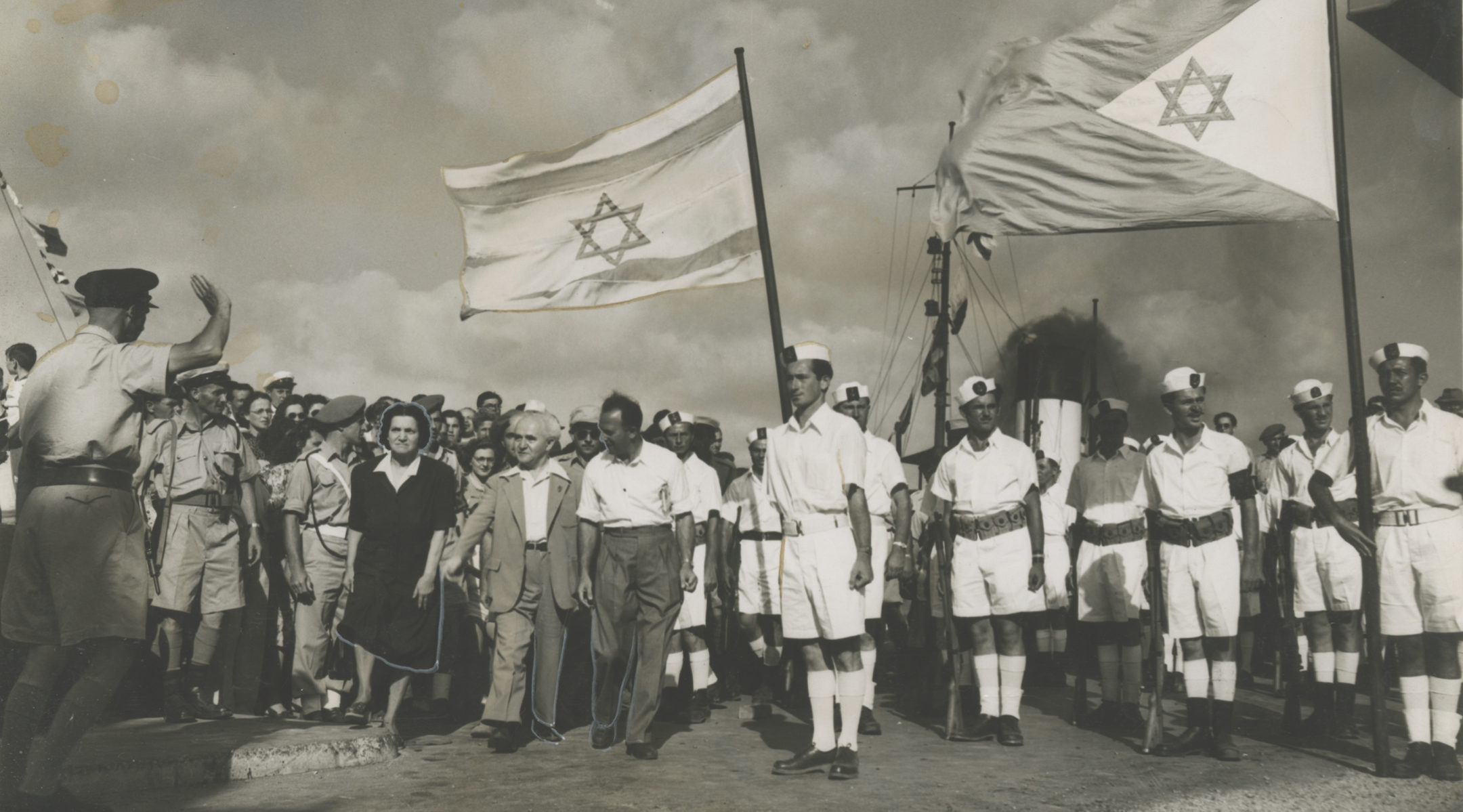Prof. Sam Lehman-Wilzig: Israel-1776, 1948, 2022: Who Wins Wars of Independence?
As Mark Twain once (didn’t really) say: “History doesn’t repeat itself, but it often rhymes.” Israel’s 1948 War of Independence and the Ukraine’s 2022 War to Retain Independence are good examples. Not only are the parallels remarkable, but the underlying lesson is even especially relevant to Israel in these trying times.
Very few politicians or military strategists in May 1948 felt that Israel had a chance against five invading Arab armies with an overwhelming manpower and firepower. Similarly, not many felt that the Ukraine could hold out more than a few weeks against Russia with the world’s third most powerful army. In both cases, the pundits were wrong. There are several, interrelated reasons.
First, defense always has an advantage over offense, especially when the fighting takes place on the defensive country’s home front. The terrain is familiar, and the civilian non-combatants can be of great logistical service as well. This was certainly the case in 1948 Israel – and no less so in the Ukraine circa 2022-23.
Second, the soldiers of a democratic country will invariably do better than those from an autocracy. If need be, the former are told why they are fighting; the latter are generally kept in the dark as befits the general, information black hole within any dictatorship. In the Russian invasion of the Ukraine, its soldiers were not told about their ultimate goal or even that they were involved in a war (“Special Operation” was the euphemism). Israel’s soldiers didn’t need to be told anything; it was crystal clear why they were fighting back in 1948.
Third and related to this second point is the fact armies in dictatorships have a culture of blindly following commands from on high, whereas democracies tend to instill a military culture of battlefield flexibility. Indeed, most are given a measure of autonomy in the field to decide what to do based on the warfront’s dynamic circumstances. Israel’s earlier Palmakh within the broader Haganah and Lehi militias inculcated such tactical creativity that carried over to the nascent IDF. The same phenomenon can be seen in the Ukraine-Russian war: the former combatants have shown great ingenuity in their battle tactics, as well as exploiting “off-the-shelf” technologies (e.g., drones) to great military use; the Russians simply plod ahead with outdated tactics, unable or unwilling to learn from their mistakes.
Fourth, also related: corruption. It is not a coincidence that the Ukraine in 2014 did not put up a fight against Russian annexation of Crimea but has done so heroically in 2022. The difference in the same country over a mere eight-year span? In 2014, the Ukraine suffered from rampant corruption; in 2022, after electing Zelensky as President to clean up the country’s corruption, the Ukraine was ready to fight with a much-improved army, relatively free of corrupting influences. Compare that to the what the Russians put on the battlefield. Many reports describe the extremely poor technological and physical preparedness of its equipment, seriously weakened after years (even decades) of internal corruption. Similar reports of the Arab armies’ poor equipment surfaced in 1948; conversely, the Israelis husbanded and refurbished every available gun, tank, and plane they could get their hands on.
Before looking at the fifth and final variable – a summation of the other four – it is worth considering similar parallels with the 1776 American War of Independence: a numerically small, militarily weak, bunch of mini-colonies fighting against the world’s supreme military power, Great Britain – and ultimately winning! How? The Americans were fighting on their home front; they had a more “democratic” (popular) culture; their battle tactics were highly flexible against the Brits’ “standard” strategy. Only the corruption aspect was missing from both sides – but this was “replaced” by the fact that 30,000 “British” soldiers were actually Hessian (German) mercenaries.
In the final analysis, it all boils down to one word: morale. True, technology and firepower are important, but wars are won or lost with soldiers (and officers). When a large gap exists between the morale of one side and that of their enemy, the war is already three-quarters won by the country with the higher morale: Americans in 1776; Israelis in 1948; Ukrainians in 2022.
One can add to that list: Israelis 2023. Here, though, the “war” is not against an external enemy but rather over domestic policy i.e., an attack on the country’s democratic foundations. Many IDF reserve soldiers who have given years (and in some cases, decades) of voluntary service to the country have told the government that what it’s doing is a severe blow to the reservists’ morale i.e., their willingness to sacrifice (time and potentially life) for a country that (in their eyes) no longer respects some of the fundamentals of democracy.
Thus, for huge numbers of Israelis, this upcoming Yom Ha’atzma’ut signifies no less than a second “War of Independence” to retain the democratic accomplishments of the first one in 1948. Let us all hope that it does not devolve into what the Americans had to go through approximately 75 years after gaining independence: the 1861-1865 civil war. History doesn’t always have to rhyme.









